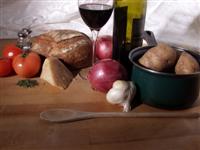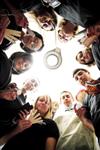TRANSPORTATION IN NAIROBI
Nairobi is a very busy city, therefore getting around can be a challenge due to limited information on the existing public transport system, and even though there are public transportations operate in the city due to insufficient traffic lights and no traffic rules are in place it can get very hectic sometimes chaotic.
The Nairobi City Centre, which is about a square kilometer, is mostly reserved for commercial and government activities, there is also an Industrial Area from the Nairobi Railway Station in a southeastern direction, covers roughly about 20 square kilometers. There are Residential areas spreads round these two hubs. The existing public transport serves all these destinations, therefore enabling commuters, mostly locals, get to their work places in the city centre and Industrial Area.
There are few typed of transport in the city, matatus (shared mini-bus taxis), buses, trains, and regular taxis. Except for train services provided by the government-owned Kenya Railways Corporation, rest is operated by private sector.
PUBLIC TRANSPORTATION
Matatus: they are used predominantly by locals as well as expats in and around Nairobi, since they cover nearly most of the parts of the greater Nairobi and its suburbs. They are 14-seater shared mini-bus taxis are easily recognizable from the yellow stripe painted front to back on their sides. When using matatus be aware of unruly and chaotic conduct of the drivers, and make sure about the destination, since it can change while you are riding in it. Fare wise, it constantly changes, it is always recommended to check the fare before the ride.
Bus: A number of bus companies serves in the city, providing an alternative to the matatus. Bus routes also converge at the city center, there are also terminals in the city, serves as drop off and pickup points for passengers. Beware, some of the bus companies 'in the city are sometimes unreliable, with their crew openly disregarding traffic laws and becomes dangerous for their passengers, and constantly varying their fares. An exception to purple-colored Double M buses. Double M buses are generally clean and well-driven, run professionally, and their fares are mostly displayed in the bus.
Train: Commuter train service in Nairobi was introduced to address the high cost of travelling by matatus and buses for the urban poor. It is so far most cost-effective public transportation in the city, and available on four lines. They operate on weekdays during rush hours, and can get quite crowded.
Taxis: If you are visiting Nairobi for a short period of time and do not have company assigned car available, taxis are most convenient and safest way to travel around Nairobi. You can find them near international hotels, most tourist sites, in city center, shopping malls, and they are usually marked with a yellow line on the side of the car. Attention: There is no meter, and you have to agree upon the fare in advance, otherwise expect to be charged over-price.
If you aren’t lucky enough to have a company car service or cannot afford to hire a good driver (which quite a few expats do), you have to venture on the roads yourself. You are allowed to use an international driving permit or a foreign license from a Commonwealth country for up to three months. Then you should get in touch with the Road Transport Department or the Kenyan Automobile Association and ask if/how you can exchange your foreign license for a Kenyan permit. Always remember to use the left-side of the road and to drive as defensively and risk-aware as possible.
 New arrivals to Nairobi are often surprised to find that this African city can stand shoulder to shoulder with many of the world’s best culinary destinations. There are plenty of restaurants in Nairobi to choose from, so it is simply a case of knowing where to dine.
New arrivals to Nairobi are often surprised to find that this African city can stand shoulder to shoulder with many of the world’s best culinary destinations. There are plenty of restaurants in Nairobi to choose from, so it is simply a case of knowing where to dine. Nairobi is home to a diverse mix of expats and as such has a wide range of international schools to serve the needs of the city's large expat population. There are international schools in Nairobi which follow the national curriculums of the UK, USA, Sweden, Japan, the Netherlands, Germany and France.
Nairobi is home to a diverse mix of expats and as such has a wide range of international schools to serve the needs of the city's large expat population. There are international schools in Nairobi which follow the national curriculums of the UK, USA, Sweden, Japan, the Netherlands, Germany and France. As is the case throughout Kenya, the standard of healthcare in Nairobi varies considerably depending on the type of treatment needed and the type of hospital one can afford.
As is the case throughout Kenya, the standard of healthcare in Nairobi varies considerably depending on the type of treatment needed and the type of hospital one can afford.